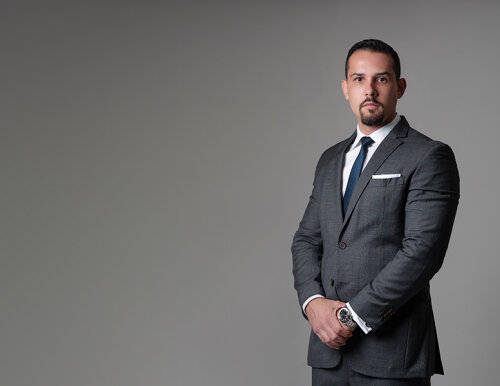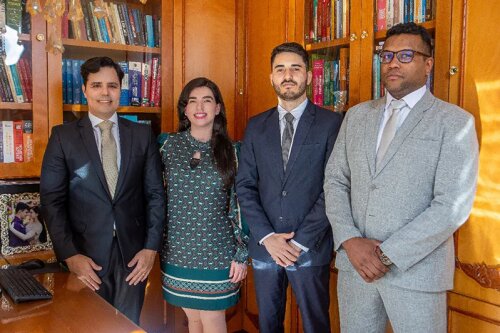Best Inheritance Law Lawyers in Brazil
Share your needs with us, get contacted by law firms.
Free. Takes 2 min.
Or refine your search by selecting a city:
List of the best lawyers in Brazil
About Inheritance Law in Brazil
Inheritance law in Brazil is part of the Civil Code and governs how a deceased person’s assets pass to heirs. It covers testaments, the rights of forced heirs, and the order of succession. The process can occur through court probate (inventário) or, when all heirs agree and there are no disputes, through an out-of-court process (inventário extrajudicial) at a cartório (notary office). Understanding these rules helps you protect your interests, reduce costs, and speed up the transfer of assets.
Key concepts include the vocação hereditária (who is entitled to inherit), legítima (the legally protected share for certain heirs), and a melhor forma de partilha (how the estate is divided among heirs). The regime of property between spouses can also influence meação and how assets are allocated. This guide explains how these concepts apply in typical Brazilian cases and when you should consult a lawyer.
Brazilian inheritance laws balance between protecting heirs and allowing deceased persons to direct part of their estate. Because laws interact with property regime, debt settlement, and tax implications, professional guidance can prevent disputes and ensure compliance with formal requirements. A specialised advogado (lawyer) can tailor advice to your family situation and assets.
Why You May Need a Lawyer
You suspect a will is invalid or incomplete, and you need to contest or defend it. A lawyer can assess validity, identify beneficiaries, and navigate disputes in court or with executors.
You are an heir and need to confirm your legitima right, especially when there are multiple heirs or a surviving spouse. A lawyer helps calculate shares and prepare a fair partilha (division).
You must initiate an inventário to transfer real estate or business assets. A lawyer can collect documents, file petitions, and coordinate with cartório and creditors.
There are debts or taxes owed by the estate, or you face a dispute with creditors. A lawyer can review liabilities, negotiate settlements, and protect your share.
You want to perform an extrajudicial inventário, but all heirs are adults and in agreement. An advogado can prepare the escritura pública at a cartório and handle any outstanding debts.
Local Laws Overview
Código Civil - Lei n° 10.406, de 10 de janeiro de 2002. This is the central statute governing inheritance rules such as vocação hereditária, legítima and the mechanics of sucessão. It sets the framework for both testamentary dispositions and the transfer of assets through heirs.
For the Civil Code, you can reference the official text here: Lei 10.406/2002 - Código Civil.
Antes de tudo, a legítima protege os herdeiros necessários, reservando parte da herança para eles.
Lei dos Registros Públicos - Lei n° 6.015, de 31 de dezembro de 1973. Regula o registro de imóveis, títulos e documentos, incluindo a transferência de propriedade via inventário e partilha em cartório. Ela define requisitos para a validação de escrituras e da documentação necessária para a transferência de bens.
O texto completo está disponível em: Lei 6.015/1973 - Registros Públicos.
O registro adequado de imóveis é essencial para a validade da transferência de bens na partilha.
Código de Processo Civil - Lei n° 13.105, de 16 de março de 2015. Regula o procedimento judicial de inventário quando a partilha precisa ocorrer na Justiça, incluindo prazos, apresentação de provas e recursos.
Texto oficial: Lei 13.105/2015 - CPC.
Observação: o CPC consolidou regras para inventários judiciais, bem como procedimentos para requerimento de herança quando existem disputas entre herdeiros.
Frequently Asked Questions
What is inheritance law in Brazil and who does it affect?
Inheritance law determines how a deceased person’s assets are distributed. It affects heirs, executors, spouses, and beneficiaries named in wills. It also governs the process for legally transferring assets.
How do I start an inventory (inventário) in Brazil?
Begin by gathering the deceased’s assets, debts, and heir information. A lawyer files a petition in court or coordinates an extrajudicial inventory at a cartório if all heirs agree. Expect documentation such as death certificate and property titles.
When is extrajudicial inventory possible and advantageous?
Extrajudicial inventory is possible when all heirs are adults, agree on the division, and there are no outstanding debts requiring court intervention. It is usually faster and cheaper than a judicial process.
Where can I find the official laws that govern inheritance in Brazil?
You can read the laws on the government’s official site Planalto at planalto.gov.br. Key texts include the Código Civil, Registros Públicos, and CPC.
Why might a will be contested in Brazil?
A will can be contested if it is not valid, if required heirs were left out improperly, or if the testator lacked capacity or proper formalities were followed. A lawyer can assess validity and represent parties in court or negotiations.
Can non-residents inherit assets in Brazil?
Foreigners may inherit Brazilian assets, but certain restrictions and tax considerations may apply. A lawyer can clarify steps, filing requirements, and any cross-border issues.
Should I hire a lawyer for an inheritance case even for a simple estate?
Yes. Even simple estates benefit from professional guidance to ensure proper documentation, prevent disputes, and adhere to local rules and timelines. An advogado can outline the best path-judicial or extrajudicial.
Do I need to be a Brazilian citizen to inherit in Brazil?
No, citizenship is not a prerequisite for inheriting. However, residency status and tax implications can affect processing and reporting requirements.
Is there a difference between a will and intestate succession?
Yes. A will directs how assets should be distributed, while intestate succession applies when there is no will. In intestate cases, the law determines who inherits and how much share each heir receives.
How long does an inheritance process take in Brazil?
Judicial inventories typically take several months to years, depending on complexity and court workloads. Extrajudicial inventories are usually shorter, often 1-3 months after consent and documentation are complete.
What costs should I expect in an inheritance case?
Costs include attorney fees, court fees, and, in some cases, taxes and notary fees. Extrajudicial inventories often cost less than judicial proceedings, but exact amounts vary by case and location.
Can I challenge a creditor claim against the estate?
Yes. A lawyer can evaluate the legitimacy of creditor claims and help negotiate settlements or prioritize payments during the inventory process.
Additional Resources
- Planatlo - Portal da Legislação - Official texts of Brazilian law such as the Código Civil and CPC. Use this to read the exact provisions governing inheritance. Lei 10.406/2002 - Código Civil
- Lei de Registros Públicos - Official text on how assets are registered and transferred, including inventários and escrituras. Lei 6.015/1973 - Registros Publicos
- Lei 13.105/2015 - Código de Processo Civil - Governs the procedural aspects of probate and related disputes. Lei 13.105/2015
- Ordem dos Advogados do Brasil (OAB) - Official professional body for lawyers in Brazil. Provides guidance on inheritance law practice and lawyer directories. OAB
- Ministério da Justiça e Segurança Pública - Government information channel for justice related services, including probate guidance and consumer rights in inheritance matters. Ministério da Justiça - Inheritance resources
Next Steps
- Identify your role in the estate (heir, executor, spouse, or named beneficiary) and list all assets and debts. Complete this within 1 week of learning about the case.
- Gather essential documents such as death certificate, wills (if any), titles, certificates of property, and tax records. Complete within 2 weeks.
- Decide between judicial and extrajudicial inventory. If all heirs agree, assets are straightforward, and debts are settled, extrajudicial may be faster. Plan for 2-6 weeks to decide and obtain initial approvals.
- Find a Brazil-licensed advogado who specializes in inheritance law. Schedule a consultation to discuss your case and obtain a cost estimate. Allow 1-2 weeks to identify a candidate and meet.
- Prepare for the initial consultation by organizing documents and a summary of your goals. This helps you receive precise advice and a realistic timeline. Allocate 1-2 weeks for this preparation.
- Engage the lawyer with a written retainer and clear scope of work. Establish fees, timelines, and deliverables in a contract within 1 week after choosing the attorney.
- Proceed with the chosen path (judicial or extrajudicial). Your lawyer will file petitions, coordinate with cartório or courts, and manage notifications and deadlines. Timelines vary by method and complexity; plan for 3-12 months for typical cases.
Lawzana helps you find the best lawyers and law firms in Brazil through a curated and pre-screened list of qualified legal professionals. Our platform offers rankings and detailed profiles of attorneys and law firms, allowing you to compare based on practice areas, including Inheritance Law, experience, and client feedback.
Each profile includes a description of the firm's areas of practice, client reviews, team members and partners, year of establishment, spoken languages, office locations, contact information, social media presence, and any published articles or resources. Most firms on our platform speak English and are experienced in both local and international legal matters.
Get a quote from top-rated law firms in Brazil — quickly, securely, and without unnecessary hassle.
Disclaimer:
The information provided on this page is for general informational purposes only and does not constitute legal advice. While we strive to ensure the accuracy and relevance of the content, legal information may change over time, and interpretations of the law can vary. You should always consult with a qualified legal professional for advice specific to your situation.
We disclaim all liability for actions taken or not taken based on the content of this page. If you believe any information is incorrect or outdated, please contact us, and we will review and update it where appropriate.
Browse inheritance law law firms by city in Brazil
Refine your search by selecting a city.

















